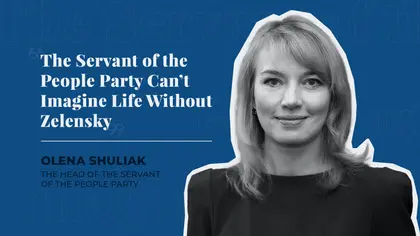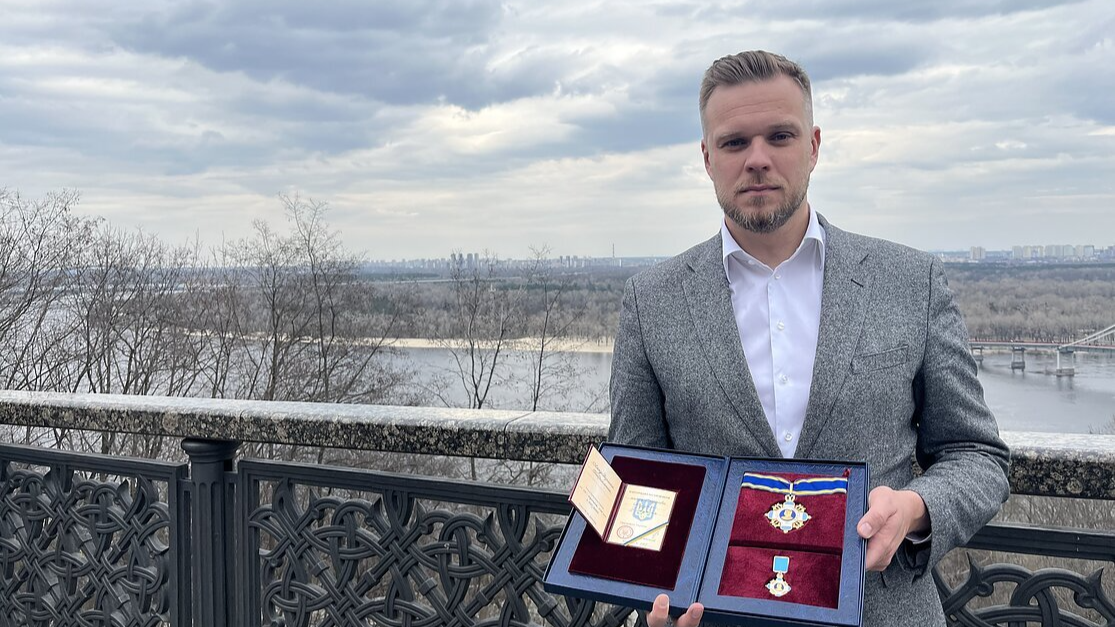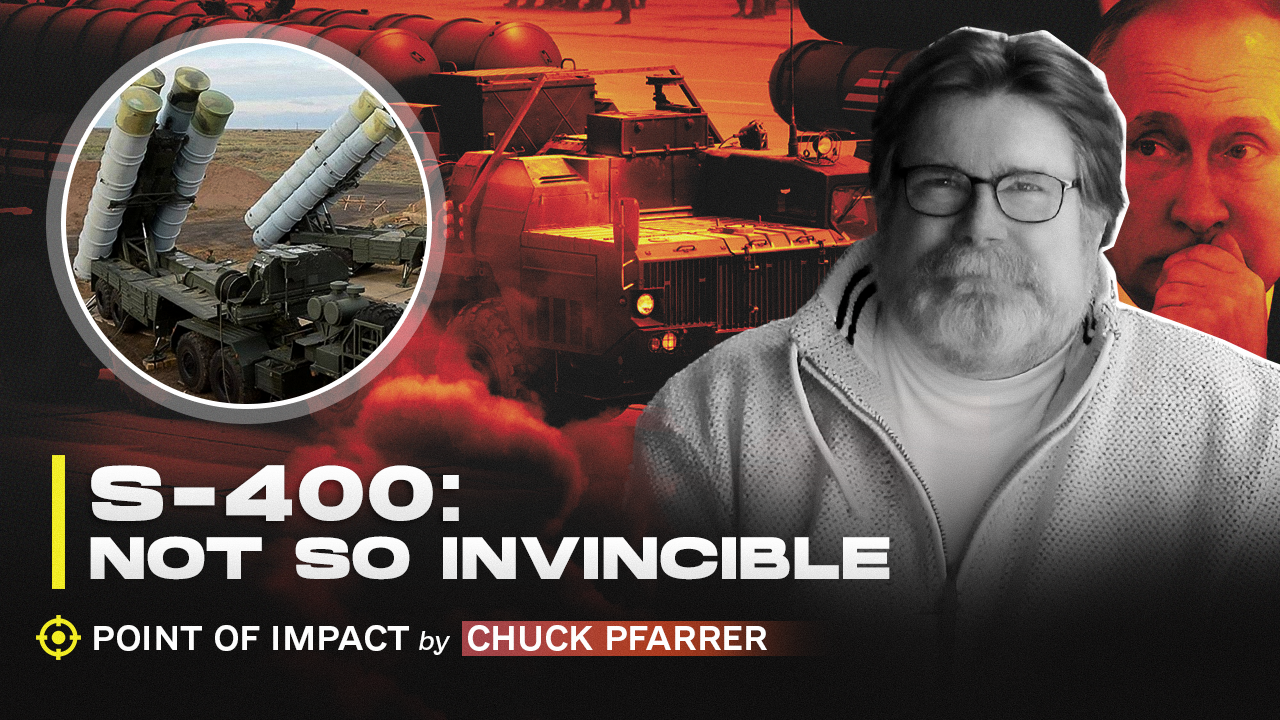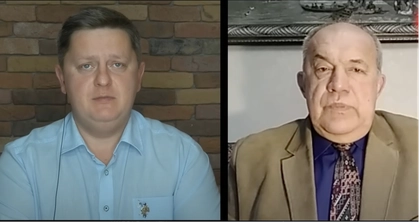In an exclusive interview with the Kyiv Post, the head of the Servant of the People party, Olena Shuliak, talked about how the war has changed the organization and work of the political party, whether the president and founder of the party Volodymyr Zelensky is helping, and whether the parliament will support the draft law on the registration of same-sex relationships.
After the appointment of the National Anti-corruption Bureau of Ukraine (NABU) director, Prime Minister Denys Shmyhal said that Ukraine had fulfilled all the requirements for EU candidacy.
JOIN US ON TELEGRAM
Follow our coverage of the war on the @Kyivpost_official.
However, there is one more requirement – the reform of the Constitutional Court – waiting to be fulfilled.
According to the latest information, Ukraine’s international partners were not satisfied with the adopted law and proposed including seven independent members in the commission for the selection of judges.
At what stage is the work now?
The reform of the Constitutional Court was defined as number one among the requirements that Ukraine needed to meet for our European future.
We have adopted the relevant legislation and rebooted the High Council of Justice. But, we still have certain obligations regarding the relaunch of the High Qualification Commission of Judges. That hasn’t been done yet.
However, the parliament has completed all its other work, for example, today it fulfilled its obligations under the anti-corruption reform plan.

Washington Insider: US Congressional Hearings on Corruption in Ukraine Are Coming
So, there is no information on the Constitutional Court?
Yes, that’s true. Reliable information on the issue is not available today. The Verkhovna Rada is still working on adopting European integration laws.
We want Ukraine to finally win most of all. After the victory, we plan to fulfill all the election promises and actively participate in the processes of the post-war reconstruction of Ukraine.
When the law concerning the Constitutional Court was voted on, some parliamentarians, including those from the Servant of the People faction, said they objected to the format of the selection commission proposed by the international partners. They argued it should be under external control.
Currently, the partners help Ukraine both financially and militarily, but there are talks in the parliament about external management.
Why can't we overcome this?
There are different opinions in the parliament and members of parliament (MPs) can express them freely.
However, for me, the idea of external management sounds strange because every day we make decisions independently.
Are our international partners helping us? Yes.
Do they have the right to influence certain processes, especially when it concerns the provision of large-scale aid, both military and monetary? Yes, of course.
In addition, let's not forget that our international partners have extensive experience we can use to avoid mistakes when reforming industries.
You led the party before the war. How has the party changed from the period before the war to now in wartime?
When I was appointed head of the party on November 15, 2021, we had many dreams and ideas.
We talked about the need to create a disciplinary commission and an ethics commission involving competent people who will help resolve various ethical conflicts within the party. We planned to reboot the political council of the party and actively engage in party building.
However, the war began a few months later.
The unity and support within the party at that time needed additional attention. All our MPs were assigned to various regions. In the first days of the war, we had our first video call with the heads of regional organizations.
We postponed all political issues and divided important ones into three parts:
The first is assistance to the Armed Forces of Ukraine.
The second is to help internally displaced persons.
The third direction is assistance to relocated enterprises.
These are the three main areas that are still our priority.
All our regional offices in unoccupied areas have continued working, although we closed some in several other districts.
Unfortunately, we lost offices in the Zaporizhzhia, Kharkiv and Kherson regions. Some of them are located in the temporarily occupied territories, in particular, in Kherson region.
How many representatives did the party lose in the regions? Or maybe the number of party members has increased?
We started the Heroes Among Us project. In every small town and village, there were party members who surprised us. We started collecting information about these people. All of them were party members – some of them had joined the party in wartime. We have a very actively growing youth wing and a steadily active women's wing.
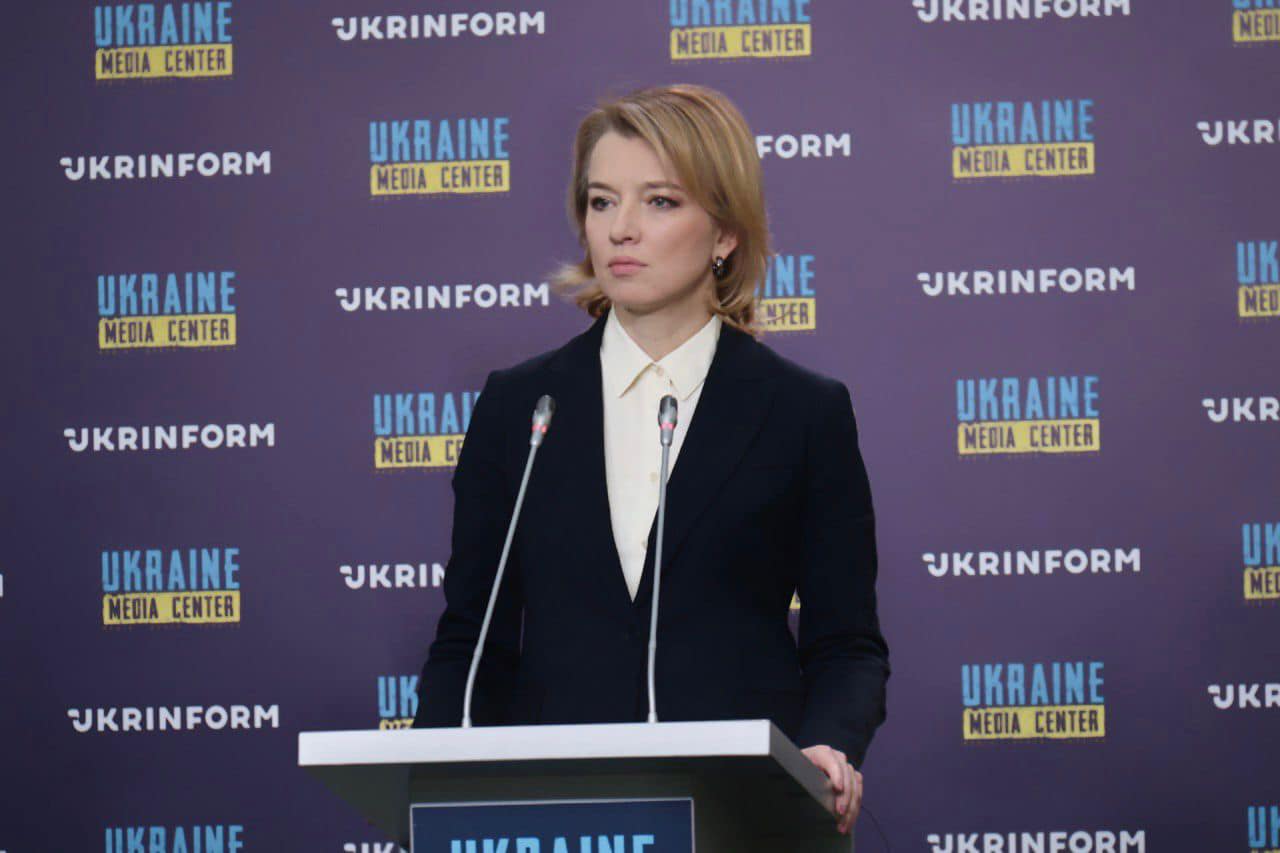 Photo by press service
Photo by press service
Unfortunately, we temporarily lost touch with some people. For example, there is a guy in our Ze!Molodizhka team (Ze!Youth - the youth wing of the Servant of the People party) who had been in captivity for 9 days.
In general, our Kherson team had stayed in the temporarily occupied territory for more than a month and it was difficult enough to take them out of there. They didn’t want to leave because they were engaged in the resistance movement.
It was very dangerous. So, we were constantly looking for opportunities to be in touch. Sometimes, when it was very difficult and the head of the organization asked to support them, we joined the United News telethon with the words: "Kherson, we are with you, hold on."
In this way, we could show that they’re not alone and we are doing everything we can to support them.
For me, the idea of external management sounds strange because every day we make decisions independently.
Are there any representatives of the party who have suffered from the Russian occupier?
Of course. This affects our people in all the temporarily occupied territories.
We didn’t lose connection with the offices, but we knew that many people had to evacuate and we helped them.
We know that some offices and equipment there were destroyed, including the Severodonetsk office (regional), the Izium office (Kharkiv region), the Bakhmut office (Donetsk region), and the Melitopol office (Zaporizhzhia region).
Sixteen more offices are under occupation (in Donetsk, Zaporizhzhia, Luhansk, and Kherson regions).
We also know that the invaders used smoke bombs and batons against our people during rallies. For example, in Kherson which was occupied at that time.
By the way, one young man from our Ze!Molodizhka team is in captivity until now. We know where he is but it is very difficult to free him.
I know that the leadership of the country is working on the issue of releasing prisoners and doing everything possible to get him freed.
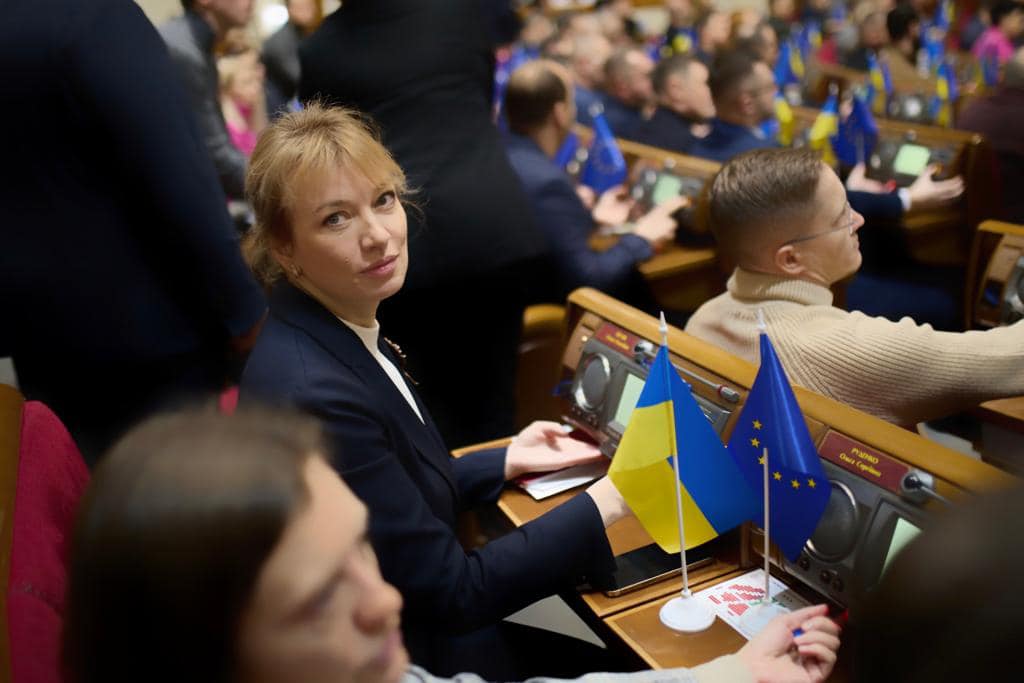 Photo by press service
Photo by press service
To be honest, we’ve lost touch with some people, in particular, from the Donetsk and Zaporizhzhia regions. I believe they are well. We are waiting for any news from them because we know cases when the occupiers were hunting the representatives of our party.
For example, when the Armed Forces freed Izium in Kharkiv region, we came there and I saw our party member Ellada Bakhtina on the wanted list. When Izium was occupied, the invaders were looking for our colleague with the goal of capturing or executing her.
It’s terrible. Fortunately, she is well now and is continuing her struggle as a representative of the Ze!Zhinky team (Ze!Women - the women's wing of the party).
In view of the above, I understand that the party has no problems with personnel. That is, when Ukraine wins and elections are held, you have people to represent the party in the next convocation of the parliament, right?
At the local level, we have selected a lot of extraordinary people who can form the core of the party staff. They are professional, purposeful, and decent people. Now we are monitoring the activities of each of them and know what they are doing and how. I am sure that these people will definitely participate in the next elections.
Whatever it sounds, but the full-scale war showed how many strong people we have and how many are ready to bring our victory closer not by word but by deed.
I think we have become stronger at all levels. By the way, we also did it with the benefit of European colleagues who have shared their experience.
During the full-scale war, our party became part of the European family - the ALDE party (the Alliance of Liberals and Democrats for Europe). According to forecasts, this party could gain a majority in the European Parliament.
How do you see the future of the party?
We want Ukraine to finally win most of all.
After the victory, we plan to fulfill all the election promises and actively participate in the processes of the post-war reconstruction of Ukraine.
There are many ideas and plans - but keeping in touch with people remains the main task of the party.
We must listen to all the wishes - all initiatives from the people - and pass them on to the government and the parliament.
Then we have to report what initiatives were implemented, which election promises were met and which were not. We have to inform the people more and get feedback from them.
We have selected a lot of extraordinary people who can form the core of the party staff.
Will the party be able to exist without Zelensky?
The party is inextricably linked to Volodymyr Zelensky.
He will quit politics sooner or later. What then?
Now we as a party can’t imagine our life without Volodymyr Zelensky. Just like millions of Ukrainians can’t imagine life without their president who is fighting this war.
Does he often ask about the life of the party?
We spoke about the party on March 13 but these meetings are not frequent.
What is the main purpose of law № 7198 on compensation for damaged property recently signed by the president?
We began to develop this law a year ago, in March, when Russian troops were deployed near Kyiv and there was terrible uncertainty. The president believed that there should be a legislative mechanism that would allow people to receive compensation for destroyed housing without waiting for reparations from Russia.
We developed this bill in a week, registered it on March 24, and voted for it at its first reading on April 1. The process was fast, coordinated, and outside of “politics.” The bill was passed after 11 months.
There are questions why we did not adopt it earlier. To be honest, we were afraid that there would be no resources to provide such compensation.
Late last year, when we created the Fund for Liquidation of the Consequences of Russian Armed Aggression, the first 17 billion hryvnias were transferred to it, including the seized funds of the subsidiaries of Sberbank and other Russian banks that had worked in Ukraine. That’s when we believed we had the first money for compensation.
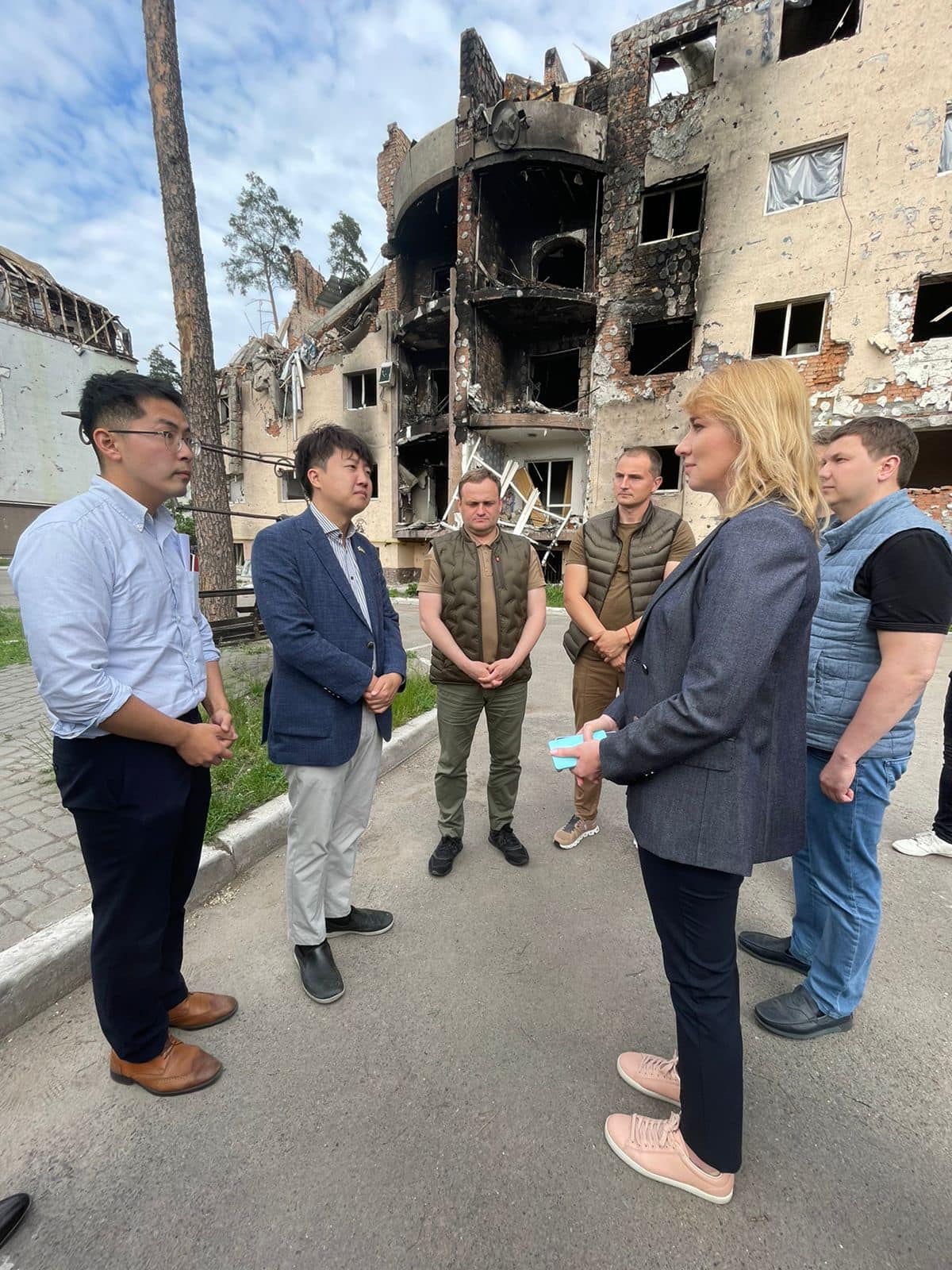 Photo by press service
Photo by press service
The law has been signed by the president and within two months the government will develop appropriate resolutions. During this time, the Register of Damaged and Destroyed Property has been created with more than 500 communities already using it.
This mechanism of compensation for destroyed and damaged property should be transparent and open for both Ukraine and for interested international donors.
If international donors don’t see such a process, they won’t give any money. Transparency can be provided through digital tools, therefore the register, the basis of this compensation mechanism, is up and working today.
How will it work? If you’re a citizen of Ukraine and your home is destroyed, you have the right to receive compensation.
There are two types of compensation. If your apartment is destroyed, you will receive a housing certificate the cost of which is calculated as follows: the area of the apartment fixed in the title deed is multiplied by the cost of compensation determined by the government. The cost of compensation will be different for each region taking into account particular characteristics.
Right now, the mechanism for determining this cost is being developed. It will be as close as possible to the figure that allows people to buy property they want at market value.
By the way, we pointed out in the law that it is not important where the destroyed housing is located. The person will be able to use the housing certificate in any location.
There is a wider choice for owners of private houses. They can either receive a housing certificate and exchange it for an apartment, or get targeted money for the purchase of construction materials or construction work to build their home on the same land plot where their home was destroyed.
Does this apply only to those citizens whose home was physically lost?
There are people who left their homes in the occupied territories. They have housing there that was not destroyed, but they can’t live there because the territory is not controlled by Ukraine.
This is a very narrow law. It only regulates the issue of damaged and destroyed housing. The Ministry of Reintegration of the Temporarily Occupied Territories is dealing with the issue of internally displaced persons separately.
What does the amount that people receive depend on?
For example, if you had a house in the Kharkiv region where market prices before the war stood at 15,000 hryvnias per square meter and your house was 100 square meters, you would be compensated 1.5 million hryvnias – which can be used in any locale.
If this money is not enough for what you want, you could add your own money and buy an apartment in Lviv, for example.
The president responds to what the public is interested in. If society has questions, then he will think about what to do with the law.
You are a co-author of draft law № 5655 on the urban planning reform in Ukraine, which was criticized by the public.
The parliament approved the bill in December 2022 but the president has not signed it. Does he see any risks in the law?
The president responds to what the public is interested in. If society has questions, then he will think about what to do with the law.
We came to the conclusion that bill № 5655 is more revolutionary than the land reform because it changes the rules in the construction market, which no one had addressed in recent decades. Since the appearance of the document [in the spring of 2021], the discussion regarding it has been ongoing.
Mayors of big cities, where there is the largest volume of construction today, have been operating without general city planing - without responding to illegal construction work. This is not right.
Of course, everyone got used to living in this “swamp” for 30 years as everyone was building whatever they wanted.
For me, local authorities and developers are one entity - they are very connected. Try to build something in any city without the approval of local authorities. You will see that it is impossible.
Therefore, when the mayors of big cities realized that they would no longer be able to control the construction industry, they got worried. Unfortunately, thepart of the public who had not read the bill supported them. These people simply did not understand the situation and trusted someone else's manipulative ideas.
Of course, I also made a mistake as a parliamentarian because I did not explain the bill well enough in time.
You say there was a year and a half...
It seemed to me that everything was clear.
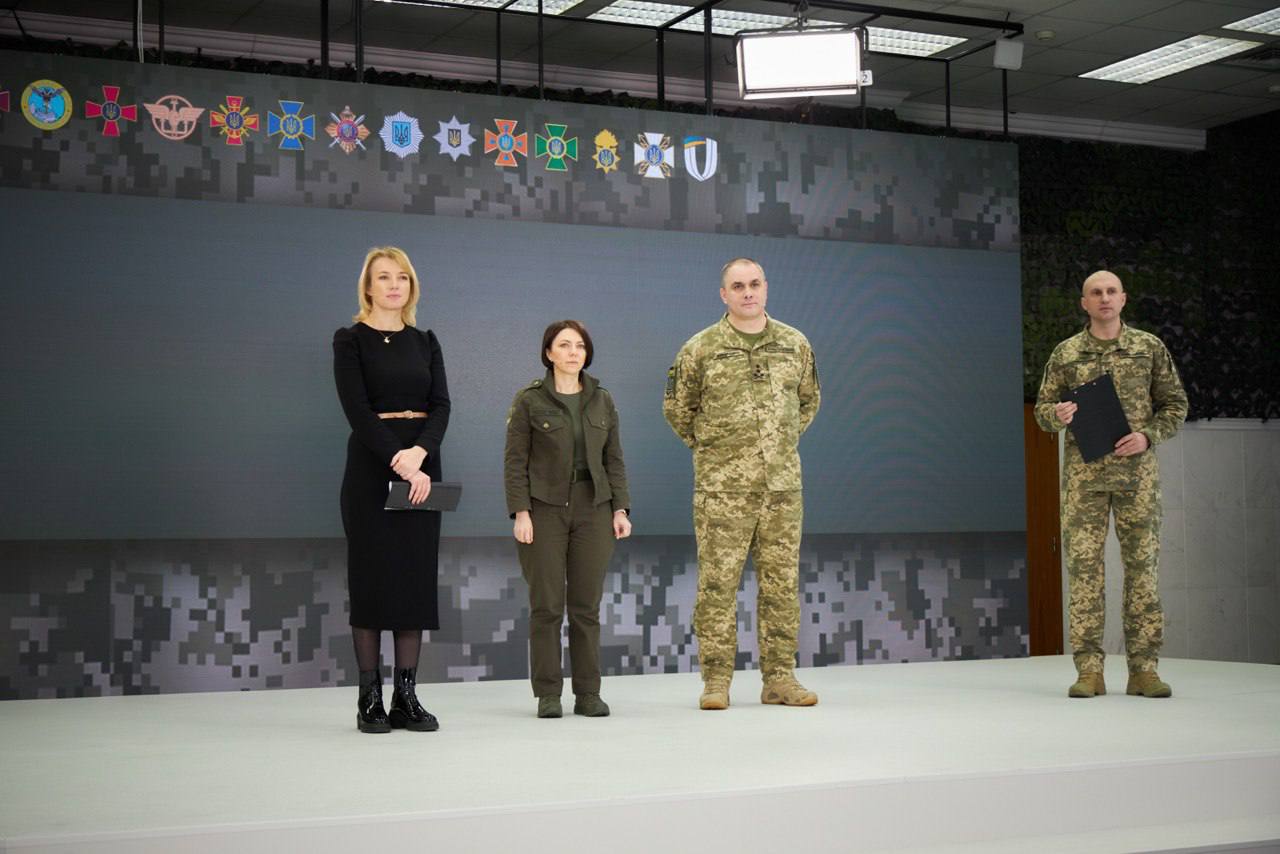 Photo by press service
Photo by press service
Has the National Union of Architects of Ukraine, the main critic of the bill, made comments before its adoption?
Not all Ukrainian architects are members of the National Union of Architects. Moreover, many well-known architects are not included in this community and do not want to join it.
On September 29, 2021, the National Union of Architects was invited to the first presentation of the bill. Since then, the profile committee is inseparable from the union: its representatives attended all meetings of working groups of the committee.
Did they like everything? No, but they had full access to information for a longer time than any other non-governmental organization that wanted to join this process. They had more opportunities to influence the process and to express their position.
Our goal is to make life in Ukraine comfortable for everyone. This applies to everything: human rights, the work of industries, etc.
You say that you communicated with the president on March 13. Did you ask him what prevented him from signing the document?
No, I didn't.
Of course, I wanted it to happen as quickly as possible because of the negative information spread by certain circles of people had affected me. It would not be true to say that I responded to this in a good way.
Of course, I react. It hurts. When dishonest people said that “Shulyak was a representative of the construction mafia,” we laughed. However, when the construction mafia began saying that I was involved, a sense of injustice appeared as if I had gone “through the looking glass.”
The ministers Oleksandr Kubrakov and Mykhailo Fedorov took responsibility for the implementation of this reform. The parliament did its work, now the government has to adopt 52 resolutions.
We really want the president to sign the bill as soon as possible. This is the reform that I will never be ashamed of.
If this bill had been adopted many years ago, the Parkovy convention and exhibition center, where the party's office is located, would not have been built, given that it is an illegal building, right?
The Parkovy convention and exhibition center is a trifle. We would not have had 50 residential buildings of developer Anatoliy Voitsekhovsky, which were built in Kyiv illegally, without proper documents.
We would not have had hundreds of thousands of investors who invested money and did not receive their apartments. We would definitely not have had a monster house in Podil (the district in Kyiv). It would have been dismantled.
I think there would have been no construction in the coastal zones in Odesa. There would have been no illegal buildings in Dnipro and no constant troubles in Lviv.
Perhaps international developers would have already been working in Ukraine.
By the way, today there is not a single international company in our market because they do not want to work in such a corruption environment.
MP from the Holos (Voice) faction Inna Sovsun submitted a bill on civil partnerships, which will allow registering same-sex relationships.
This has become an important issue in Ukraine during wartime when many LGBT representatives are protecting the country but do not have the same rights as traditional couples.
Do you think this bill will be supported in parliament?
I became one of its signatories. Non-governmental organizations who deal with these issues turned to me and asked me to sign the document. As a parliamentarian, I could not but respond to this request.
I know that there was a relevant petition to the president and Volodymyr Zelensky instructed the Ministry of Justice to develop a corresponding bill. This indicates that they know about this problem and want to solve it.
We think there will be some opposition to any changes, any reforms. However, when I read the appeal of defenders who write that today could be their last day and they ask for the same rights that everyone else has, it is simply impossible to ignore.
Our goal is to make life in Ukraine comfortable for everyone. This applies to everything: human rights, the work of industries, etc.
We have to move on to a qualitatively higher standard of living after victory because every day our defenders die for the sake of these values.
You can also highlight the text and press Ctrl + Enter


